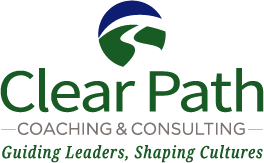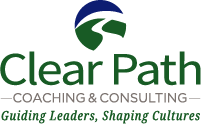Career planning translates skills, interest, knowledge, value, and talent into a possible career or job. There are four main stages of career planning: self-assessment, exploration of a possible career, career identification, and finally, coming up with an action plan.
The significance of career planning: A career plan provides a clear direction and path for your career. A career plan also has the incredible benefit of making objectives that seem impossible more manageable. Here are some of the concrete reasons why you should have a career plan:
- It makes it more feasible to choose a career. The process of career planning includes identifying the skills and strengths of the individual, thus streamlining the process of searching for related career opportunities.
- Career planning ensures job security. People tend to follow the trend when selecting the degree to pursue, and as a result, many MBA graduates find it challenging to find a job in the market as the market is more or less saturated. Career planning can make it easier to pin down jobs that are secure rather than simply desirable.
- It ensures financial stability. Career planning helps the individual mitigate financial risks. It also helps the individual to consider the possible uncertainties or unforeseen situations that could affect the job.
The four stages of career planning require time, research, and effort. Below are some things to consider at each stage.
Four Stages of Career Planning
Stage 1: Self-Assessment
What strengths and assets do you currently possess? This should include things like:
- Hard skills
- Soft skills
- What have been your biggest contributions to an organization/the world to date
- Network/Connections
- What you’ve liked/enjoyed about each role/job you’ve had to date
- Cash
- Stock
- Property
What are your core values – the guiding principles you live your life by, your true north, the things most important to you when making decisions – here’s a sample values list to get you started.
What motivates you – what causes you to take action? For example, are you motivated by learning new things, developing strategy, creating order and process, providing support to others, building consensus, finding practical solutions, exploring ideas and possibilities, etc?
What contribution or impact do you want to make on the world/for a company?
What are you passionate about?
- What do you find yourself talking a lot about?
- What are you doing when you experience a sense of flow – when your mind and body are deeply engaged in something and you don’t notice anything else going on?
- What charities do you connect with? What’s driving the connection?
- What types of books/movies do you gravitate towards?
- How would you help people/an organization/the world if you won $10M?
What do you want each of the below aspects of your life to look like when you’re in your ideal career?
- Personal/Family Life
- Work/Life Balance
- Financial/Wealth
- Health/Wellbeing
- Community & Friendships
- Work Environment & Culture
What’s your communication style – how do you interact and exchange information with others? For example, do you think before speaking ensuring your ideas are well thought out, or do you share and build ideas in the moment?
What’s your leadership style or way of going about getting things done and inspiring others?
What are your potential blind spots – what are you not aware of about yourself that could hinder your success?
As you can see, these are some pretty deep questions that will require some self-reflection, and likely discussions with others who know you well. You can also consider taking a Personality and Career Assessment to help you uncover what you might not already know.
Stage 2: Career Exploration
After a thorough review of everything in Stage 1, make a list of the top 5 potential careers to explore. If you chose to do a Personality and Career Assessment, your results will likely come with a list of careers for you to explore
Dive deep into each of your top 5. Do your research and talk to people in these roles and explore:
- How people get into that line of work
- What additional education or training might be needed
- What would be expected of you in terms of the role, skills, and experience
Create your “Short List” – the top 2 careers you would like to explore further and make a list of what else you want to know about these careers. Some things to consider include:
- What is the job market like for this type of work? What type of growth is expected?
- What challenges is the industry facing?
- What major changes/threats is the industry facing?
- Who hires newcomers to this line of work?
- What’s the work/life balance in this type of career?
- What’s the typical career progression?
- What does a “day in the life of” this career look like?
- What do people in the career/role like and dislike?
Determine the best way to get your questions answered, e.g., can Google help, do you need to talk to more people in these roles, etc?
Stage 3: Career Identification
Take some time and take everything in and then make a decision. If you find yourself unable to get to a decision, not to worry, a few things might be going on:
- You still have unanswered questions – if that’s the case, go get them answered
- You might be stuck in analysis paralysis – if this is the case, own it and ask yourself what really needs to happen for you to make a decision
- You might be experiencing some type of fear (which of course is absolutely normal) so recognize this and attempt to work through it. Remember FEAR can mean Face Everything and Rise or Forget Everything and Run. This might also be a great time to get a coach, they will help you understand and work through the fear that’s getting in your way.
Stage 4: Create Your Plan of Action
There is no right way to create a plan of action so don’t waste time trying to find it – just get started identifying the things you believe you need to do to move forward. Imperfect action is best at this point – you can course-correct as you learn more. Know this as well – the plan of action will be different if you’re just starting out in your career vs. if you‘re making a career change vs. if you’re going into your encore career.
Creating a career plan can definitely keep you focused and purposeful; however, always remember to be flexible with your plan – you never know when a great opportunity might present itself and you don’t want to exclude what could be a great opportunity because you’re too locked into your plan.
At Clear Path Coaching and Consulting we believe there’s a path and a plan for everyone to be able to be thriving in their career. If you’re not certain of your path or you’re unsure about how to get started, please reach out: tracy@clearpathcoachingco.com. We’d love to help!


